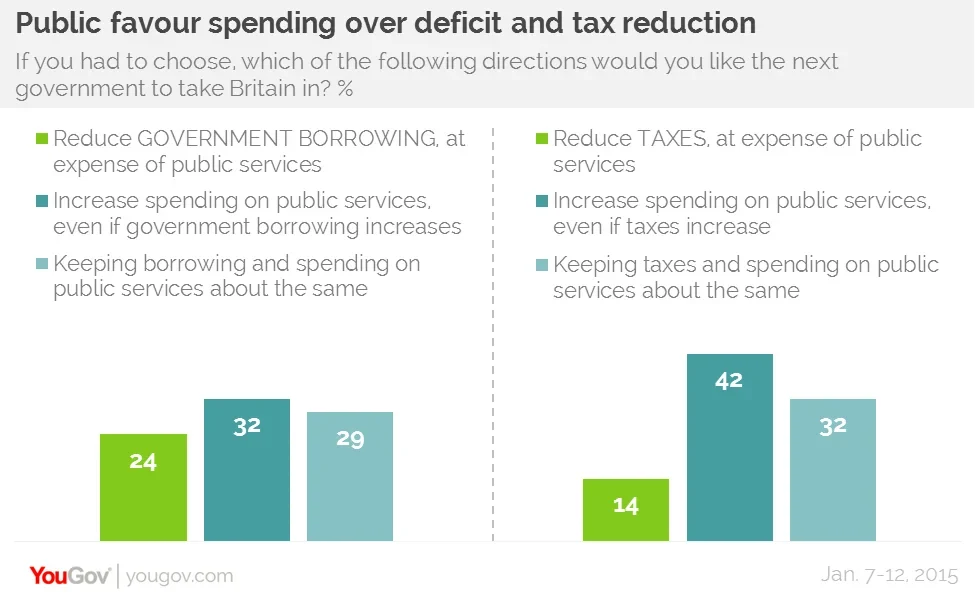British people tend to say the next government should spend more on public services – even if it has to borrow more or tax more
We now have a clear definition of the ballot-box question – the choice the voters feel they are making when their little pencil hovers over the paper: do we want deeper cuts to reduce the deficit, or do we prefer to spend more on public services? In YouGov polling for the Times Red Box, we put it to the voters: "If you had to choose, which of the following directions would you like the next government to take Britain in?" and we gave them three choices.
- 24% opted for "doing more to reduce the amount the government borrows and the debt it builds up, even if it means public services do less or have to do things with less money"
- 32% preferred "Giving public services more money and more investment to try and improve services, even if it means the government has to borrow more and builds up more debt"
- 29% want to leave borrowing and spending as now

With another sample, the question substituted lower taxes for reducing the deficit. This actually increased the preference for more spending, with only 14% going for "trying to keep down or reduce the amount of tax that people pay, even if it means public services do less or have to do things with less money", while 42% preferred "giving public services more money and more investment to try and improve services, even if it means many people have to pay more in tax" (and 32% who wanted things to stay as now).
If Labour can persuade people that they will protect public services from the deepest cuts while still showing a modicum of concern about debt, they are in with a strong fighting chance of edging the Tories.









